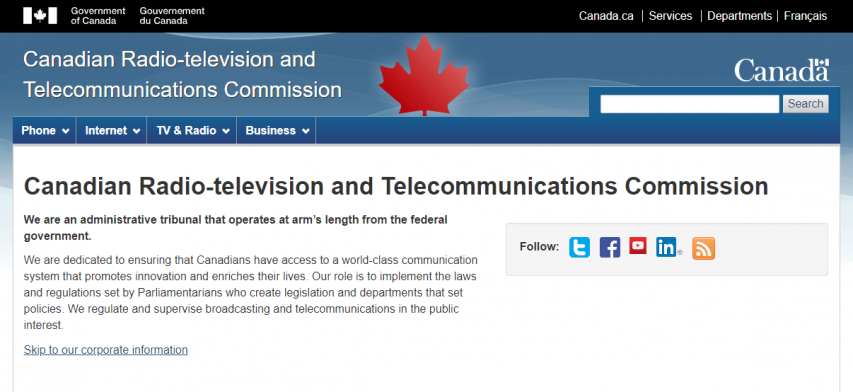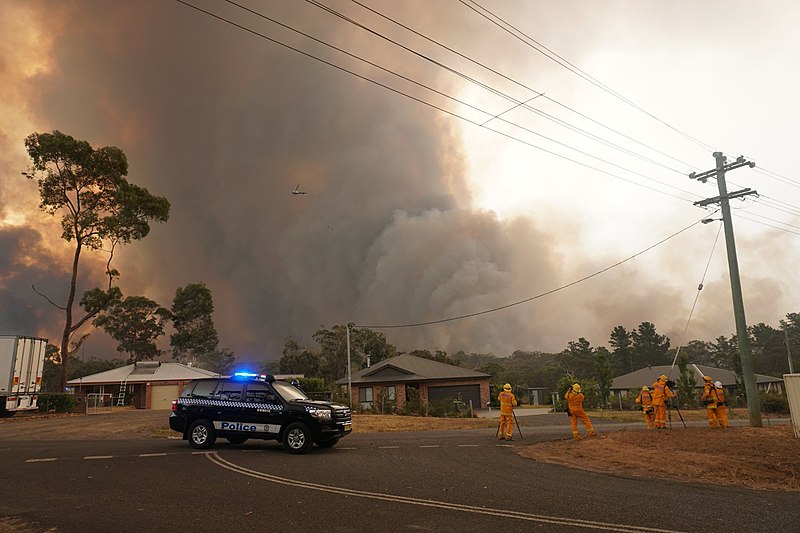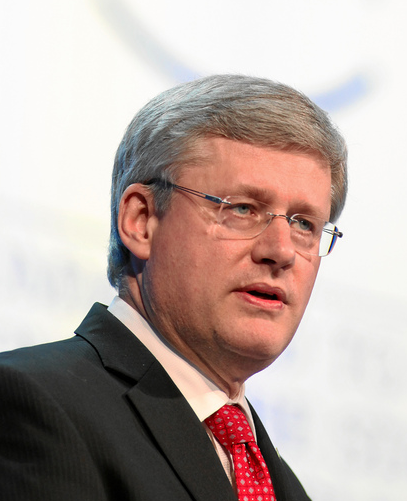Forgotten Weapons
Published 30 Sep 2015http://www.patreon.com/ForgottenWeapons
Hammer price: $2,500
The Bren Ten is an interesting story of handgun development and business failure. The gun was first developed by Dornaus & Dixon, with the consulting help of the iconic Col. Jeff Cooper. It was intended to be a handgun to improve upon the venerable 1911 in every way.
To satisfy the adherents to the theory of large-caliber handgun cartridges, the gun was designed around a new 10mm cartridge designed by Norma. This cartridge would propel a 200 grain bullet at 1200 fps from a 5 inch barrel, making it the most powerful service handgun cartridge in production. It would use a 10-round magazine, and also be convertible to .45ACP.
The gun itself was based on the excellent Czech CZ-75 (made at Brno, which is where the “Bren” portion of the pistol’s name came from). It had full length slide rails, a DA/SA trigger that could be carried cocked and locked, and nice big sights.
Unfortunately, a combination of production quality problems, inadequate magazine design, preorders, and other issues led to the company quickly falling into tough financial straits. The guns were only manufactured for about 2 years before bankruptcy ended production. Some had been shipped without magazines, and Bren Ten magazines remain a sought-after commodity today.
March 6, 2020
Bren Ten: The Most Tactical Pistol!
February 27, 2020
Tuesday night’s Democratic debacle debate
Mark Steyn reports on the casualties from the latest Democratic presidential debate:
Henry Kissinger’s famous line on the Iran/Iraq war was that it’s a shame they can’t both lose. In Tuesday night’s primary debate they somehow contrived for everyone to lose, including both the Democrat Party and the media. It reached its peak of perfection early on when all seven candidates began shrieking over each other and, as with some hideous atonal aleatoric modernist cacophonous symphony, its very unlistenability seemed an impressive feat of organization.
Five insipid moderators sat there like dowagers declining to catch the eye of the shrieking nutter on the Piccadilly Line as Elizabeth Warren ate up all the opening airtime with charges that Michael Bloomberg would make you kill your babies (she’s not concerned about the baby-killing, only that it shouldn’t be Bloomberg ordering the hit). Realizing that the show was in danger of degenerating into Screech White and the Six Dwarves, her comrades belatedly began screaming along, shredding the alleged “rules” even as the hopelessly inept moderators gamely persisted with all the usual bland over-formatted props of leaden telly debates – like making a big deal about interactively selecting random Twitter-submitted questions about the besieged Syrian city of Idlib.
Mayor Pete looked earnestly into the camera and declared, “I stand with the people of Idlib.” Which, translated out of of Demoblather, means: You guys are screwed. Still, the ability to adlib a line about Idlib is not to be disdained.
In other news, Joe Biden got tough with China: “They must play by the rules. Period. Period. Period.” Actually, I think “period period period” is an ellipsis… Which is oddly Bidenesque. But he was assessed by the experts to have delivered a killer performance – if only because he appeared to know what state he was in and which office he was running for, and did not claim to have been arrested on the streets of Soweto while trying to see a South African prisoner in a gaol cell nine hundred miles away. Great job, Joe!
On the other hand, he did assert that, thanks to Bernie’s crazy pro-gun Second Amendment absolutism, 150 million people had been killed since 2007. Which would be half the population of America. And is 149,997,230 people more than the coronavirus, and roughly a thousand times the entire population of Idlib, so you’d think somebody would have noticed it.
February 25, 2020
QotD: Canadian content rules
[Stargate: Atlantis] is a Sci-Fi channel show produced in Canada, starring Canadians and featuring a cranky, sympathetic Canadian character in a lead role. But thanks to Canadian trade-barriers it has yet to air on Canadian television. Remind me again what original programming Canada’s CRTC sheltered Space: the Imagination Station has produced? How many times can we be expected to watch decade old repeats of Seaquest DSV in defense of “Canadian culture”? If they had the wisdom to rebroadcast Starlost or some such epic crap I could almost see the point but as it stands CanCon rules, and the businesses they shelter, are a joke.
I tried making this case to a left-leaning friend. She said, half-joking, “I know you are speaking Canadian but I can’t understand any of the words.” I am reminded every day of my former communication studies undergrads who would argue for Canadian content rules (I am told these represent “regulation” and not “censorship”) and, with no change of expression, cheerfully explain they never watch Canadian television because it is uniformly awful. Such is the naked truth of ideology.
Ghost of a Flea, “Poisoning the Well”, Ghost of a Flea, 2005-08-12.
February 23, 2020
QotD: Go eat bugs, plebs!
What is this creepy obsession with the elite telling us to eat bugs? Every few weeks, some mainstream media outlet has one of its gooey writers go off on how delicious and nutritious insects supposedly are, and it’s downright bizarre. The latest piece of pro-pillbug propaganda is from the formerly prestigious Economist, “Why Eating Bugs Is So Popular In Congo,” where the author assures us that “The creepy superfood is rich in protein and magnesium.” Thanks, but I think I’ll get my protein and magnesium in a manner that does not involve gobbling grubs.
What is with these people?
This bug bingeing is a running theme in the mainstream media. The New York Times, taking a break from passively aggressively correcting its garbage takes, asks “Why Aren’t We Eating More Insects?” The answer is, of course, “Because they are insects, you weirdos.”
CNN goes on about “Bugs: The Food That Can Feed, And Maybe Save, The Planet,” as if Brian “Tater” Stelter is going to give up stuffing Cheetos in his talk-hole in exchange for caterpillars.
And National Geographic manages to do the impossible and make us hate the United Nations even more by informing us that the “U.N. Urges Eating Insects,” and offering us “8 Popular Bugs to Try.” Popular with whom?
The Economist is talking about people munching millipedes in Congo, and you have to wonder why we would take Congo’s lead in anything. It’s the Congo – you should carefully examine what the Congo does, then do the opposite. That goes for other strange countries too. Frankly, foreign countries are generally terrible and there is not a lot that other countries have to teach us – I lived on two other continents and this bizarre notion liberal Americans have about other countries being better than us is grossly misplaced. Other countries are mostly terrible.
Exhibit A: They eat bugs.
Do you think the people of Congo are saying, “Beef? Pass. Hand me that plate of maggots!” You don’t eat grasshoppers because you have other options. No one’s first choice is fruit flies.
Kurt Schlicter, “Tell The Nags To Go Pound Sand”, Townhall.com, 2019-11-19.
February 12, 2020
QotD: Experienced political operators after an unexpected paradigm shift
I think this is causing some confusion, blindness and otherwise inexplicably stupid behavior in people who never seemed stupid before. This is what I call The Years the Masks Fell off.
Look, take a just-now thing: the DNC says that all precincts in Iowa WERE counted. The app recorded every vote, they say. They just need to tally them.
Turns out that’s probably not precisely true.
As a friend noticed, that’s not precisely a lie, that’s just “making sh*t up.”
We’re seeing that a lot from the other side of the aisle suddenly. Unbelievably stupid behavior like the sham wow impeachment.
They keep telling us “Who you gonna believe, me or your lying eyes?” and being shocked and appalled when we choose our lying eyes.
[…]
And then they’re shocked, nay astonished, when these tactics don’t work. While we who are standing outside this look at them and go “Who would think that would work? Some two year old?”
I mean half of the bizarre behavior of our government and its agencies falls under that heading too. “Who could think that would work/wouldn’t be found out/made any sense?”
But the thing you have to understand is that you’re not dealing with stupid people. Not by half. You’re dealing with people who were very competent and comfortable in — for lack of a better term — the previous paradigm of politics, or publishing or whatever.
The more comfortable they were; the easier it was for them, the harder it is to accept that it’s gone and it’s not coming back
For instance, the dems could trust the media would cover for them absolutely and completely, and that their pettiness, idiocy or outright corruption would never be revealed.
They got used to it, they got comfortable. They got to believing it was their natural right. It was just the way things were. They were the good people. Their hearts were pure. No one would ever look into their behavior outside the limelight.
If some psychological tests are correct, they grew to believe they were entitled to corruption and unethical behavior for all the “good” they did, such as Clinton thinking he was entitled to all the women he wanted for “fighting for women’s rights” (Which for men like him always mean abortion, but never mind.)
They can’t adapt. They can’t believe things have changed.
Sarah Hoyt, “How Things Have Always Been”, Libertarian Enterprise, 2020-02-09.
February 11, 2020
“… loveable Nickelodeon show Paw Patrol is an insidious tool of capitalism”
I’ve only heard of the show because my grand-niece is a huge fan, so I can’t say anything one way or another about these heresy allegations:
Six adorable, daring puppies and their whiz kid leader, ten-year-old Ryder, rescue people in the community of Adventure Bay. You would have to be a fool to not love Paw Patrol. And that’s where the Canadian state broadcaster CBC comes in!
A new article by Rebecca Zandbergen explores the groundbreaking new theory by Canadian university professor Liam Kennedy that loveable Nickelodeon show Paw Patrol is an insidious tool of capitalism. Kennedy, from King’s University College, has penned a vital new piece of research called “Whenever there’s trouble. Just yelp for help”: Crime, Conservation and Corporatization in Paw Patrol” in the peer-reviewed journal Crime Media Culture. His child isn’t allowed to watch the show, but Kennedy spent countless hours watching it in his office.
In the show, Ryder is the ring-leader of the pups, each of whom has a job to do as part of their team. There’s Chase, the police dog, Marshall, the fire chief dog who can never quite get control of his hose, Rubble, the builder, Skye, who flies a plane for some reason and is the girl pup, Everest, the extreme outdoor adventuring pup, Rocky, the rescue dog, and Zuma, the pup who drives a boat.
Together, they are the Paw Patrol, and they even have a headquarters, because all kids love a home base. Inexplicably, the grown-ups in town depend on Ryder and the pups to help them when they’re in a jam. Probably because it’s a show for kids, so it’s kid-centric. Kids like that.
Kennedy posits that “Paw Patrol, as a private corporation, is used to help provide basic social services in the Adventure Bay community. That’s problematic in that the Paw Patrol creators are sending this message that we can’t depend on the state to provide these services.”
Kennedy was angry that elected officials are not portrayed as heroes: “Mayor Humdinger and Mayor Goodway — kind of the representatives of the state or the government — are portrayed negatively,” Kennedy argued.
Kennedy also pointed out that, at the age of ten, Ryder should be in school, not saving the world. CBC did not bother to ask Kennedy how he feels about real-life school-skipper and saviour Greta Thunberg. We guess some do-gooders are more equal than others.
January 29, 2020
Charles Stross on “reality” TV
I don’t watch much TV at all … after catching the Superbowl on Sunday, I may not turn on the TV until the NFL preseason gets underway in the summer, so my impressions of reality TV offerings are gathered second- or third-hand at best. That said, I do recall watching some very early reality TV in the late 80s or early 90s (the one that comes to mind was something like “take a bunch of urban Brits and dump them in a recreated iron age village”). As Charles Stross describes the current crop of shows, I’m very confident that I’ve missed absolutely nothing over the decades:
I watch as little television as I can, and most of it by accident.
Whenever I do catch an eyeful, it usually consists of one of three things: a talking heads news channel, organized sportsball, or a Reality TV show. The first I try to ignore (they’re usually triangulated on the tabloid newspapers with added eye candy, then dumbed down: as information sources this century, TV news channels are useless). The sportsball I leave to my spouse (who is prone to lecturing me interminably about Manchester City). But the latter phenomenon — Reality TV — has all the grisly attention-grabbing potential of a flaming school bus careening out of control into a public execution: I basically have to leave the room in a hurry to avoid having my eyeballs sucked right out of my head by the visual media equivalent of internet clickbait.
What makes Reality TV shows so addictive?
The sector is dominated by a couple of competing recipes. As in so many mature markets, there’s an 80/20 split between a dominant incumbent and an insurgent that isn’t quite successful enough to overturn a monopoly but is too tenacious to die. Think Android/iPhone, or car/pick-up truck (that latter died about a decade ago in the US).
In the case of rTV shows, the 20% insurgent is about people demonstrating competence. Mythbusters was the classic competence-porn show (although it deteriorated into the explosion-of-the-week club after a few seasons): using science!!! and workshop/lab work to evaluate the plausibility of urban legends. Other competence rTV shows include: a team of dudes acquire a car wreck and restore it to good-as-new condition, a former special forces soldier/scout troop leader is dumped on a desert island and demonstrates survival skills, and so on.
But the other 80% of rTV shows are incompetence porn.
Incompetence porn Reality TV, as pioneered by Big Brother, usually aims to get the audience to laugh at or mock the participants in a contest designed to plumb the depths of humiliation. Instead of dropping a fit expedition leader on a desert island, the show dumps a bunch of washed-up B-list celebs in a wilderness of mosquitos and no soft toilet paper. Or perhaps it’s a bunch of Armani-suited sociopaths in a boardroom where they’re expected to pitch business start-up proposals at a washed-up B-list business celeb like Alan Sugar (or, in the American version of The Apprentice, a certain mobbed-up New York property speculator with shady Russian banking connections). Back-stabbing is a given in the celebrity/sociopath driven variant of rTV, as incompetent contestants are shoved out of the show at every episode until only the most obliviously egocentric remains.
(Note that the survivor selection criterion isn’t “competence”, be it at wilderness survival or boardroom brown-nosing: it’s entertainment value. Because these shows, despite the name, aren’t about reality, they’re showbiz.)
But these aren’t the worst.
“CanCon” rules for internet streaming services will be “inevitable”
Yes, the federal government is serious about extending the moronic “Canadian content” regime to internet streaming companies (like Netflix). Canadians are too blind to be allowed to select all of their own viewing without the paternal hand of government jiggling those choices in a politically desired direction, as Michael Geist explains:
Later this week, a government appointed panel tasked with reviewing Canada’s broadcast and telecommunications laws is likely to recommend new regulations for internet streaming companies such as Netflix, Disney, and Amazon that will include mandated contributions to support Canadian film and television production. In fact, even if the panel stops short of that approach, Canadian Heritage Minister Steven Guilbeault and Canadian Radio-television and Telecommunications Commission chair Ian Scott have both signalled their support for new rules with Mr. Guilbeault recently promising legislation by year-end and Mr. Scott calling it inevitable.
My Globe and Mail op-ed notes that the new internet regulations are popular among cultural lobby groups, but their need rests on a shaky policy foundation as many concerns with the fast-evolving sector have proved unfounded.
[…]
Third, the not-so-secret reality of the Canadian system is that foreign location and service production and Canadian content are frequently indistinguishable. Qualifying as Canadian requires having a Canadian producer along with meeting a strict point system that rewards granting roles such as the director, screenwriter, lead actors, and music composer to Canadians.
Yet this is a poor proxy for “telling our stories”. The rules mean foreign companies can never produce Canadian content leading to the absurd outcome that revivals of Canadian programs such as Trailer Park Boys and Degrassi will not meet the qualification requirements if Netflix is the sole funder and producer. Moreover, programs such as The Handmaid’s Tale may be based on a Margaret Atwood novel, but using one of Canada’s best known novelists as the source doesn’t count in the Canadian points system.
So what is Canadian? A quick scan of Canadian Audio-Visual Certification Office data turns up Blood and Fury: America’s Civil War, The Kennedys, Murder in Paradise, Natural Born Outlaws, Who Killed Ghandi?, and dozens of other programs that are Canadian in regulation-only. Further, there are also “co-productions”, in which treaty agreements deem predominantly foreign productions such as The Borgias or Vikings as Canadian.
January 22, 2020
January 17, 2020
The crying need for “regime change” … in Canadian newsrooms
Chris Selley discusses the amazingly tone-deaf “corrections” issued by CBC and CTV over their malicious misquoting of former Prime Minister Stephen Harper’s comments on the Iranian government:
Harper did not advocate military intervention in Iran, or indeed any particular intervention whatsoever. Despite describing Iran (accurately) as an “anti-Semitic state” premised on “religious fanaticism and regional imperialism” that is standing resolutely in the way of cooperation between other Middle Eastern nations, Harper didn’t even advocate “a complete change of government.”
Prime Minister Stephen Harper speaking at the Annual Meeting of the World Economic Forum in Davos, Switzerland, January 26, 2012.
World Economic Forum photo via Wikimedia Commons.“I do believe we need to see a change in Iran if we are going to see peace in the Middle East,” he said.
“Without a change in the nature of the government of Tehran,” he said, “the Middle East will continue to be in turmoil.”
He said he hoped the furious protests in Iran might nudge the country toward “a better trajectory.”
These are perfectly anodyne statements. Who doesn’t want the Iranian regime to alter its behaviour?
Clarification or correction? I would say this calls for something more like “colossal embarrassment necessitating deep introspection.”
The root problem, I think, is that so much of Canadian politics is purely for show. We are a sparsely populated, not very powerful nation where the differences between the two major federal parties are remarkably small — and thus so are the stakes. It requires special measures to keep people interested, as much for the media as for politicians.
[…]
That’s how the big outlets like CBC and CTV make the sausage of the day, and it’s understandable. They do great investigative work, but the beast needs feeding not just every day, but all day every day. During the campaign I would watch colleagues set up for live hits in various parking lots and back yards and sometimes even on the campaign bus, and imagine them speaking the truth: “I’m here in Delta, B.C. and there’s f–k-all to report. Back to you, Kent.” But the viewers must never know. They need drama, as weak as it might be. I can easily imagine how that principle transformed “a changed regime” into “regime change.”
The real problem with this reporting regime is when it’s applied to things that actually do matter. There are serious potential consequences to telling the world that Stephen Harper thinks, in essence, that we should declare war on Iran with an eye to bouncing the ayatollahs. Harper’s successor and his government are in the midst of an extremely delicate and frankly improbable operation to find out precisely what happened the morning of Jan. 8 in the skies above Tehran and seek justice for the victims and their families. Those families don’t deserve fake news about a warmongering former PM, and I’m sure our diplomats would prefer members of the unchanged Iranian regime didn’t come across it either.
This isn’t a Canadian federal election. It’s real life, and needs to be covered as such.
January 10, 2020
QotD: Deciding what is “newsworthy”
[…] the ripples of battle in their formal sense are guided by the presence of historians, and that means originally Westerners, and more recently in large part Europeans and Americans. And such distortions do not always play out in bias toward Westerners, especially in the present age. In April 2002 the Israeli Defence Forces entered the West Bank community of Jenin to hunt out suspected suicide-murderers, whose co-members had blown up hundreds of Israeli civilians over the prior year. Although fewer than sixty Palestinians were killed in Jenin — the great majority of them combatants — the world media seized upon the street fighting, dubbing it “Jeningrad” as if they were somehow the moral equivalent of one million Germans and Russians lost at Stalingrad. Yet just days after the Israeli withdrawal from Jenin, Pakistan squared off against India. The stakes were surely far higher: One-fifth of the world’s population was involved. Both sides were nuclear powers and issued threats to use their arsenals. In the prior year alone nearly four times more Indians and Pakistanis were killed than Palestinians and Israelis. By any calculation of numbers, the specter of the dead, the geopolitical consequences, or the long-term environmental health of the planet, the world should know all the major cities in Kashmir rather than a few street names in Jenin. And if the world sought to chronicle destruction and death in an Islamic city, then by any fair measure it should have turned its attention to Grozny, where an entire society of Muslim Chechnyans was quite literally obliterated by the Russian army.
The idiosyncracies of historical remembrance of battle do not hinge alone on the presence of a Socrates or Teddy Roosevelt in the ranks. Sometimes there are wild cards of culture and politics as well. In this case and at this time, the fact that Israelis fit the stereotype of affluent and proud Westerners abroad while the Palestinians were constructed as impoverished and oppressed colonial subjects brought to the equation the sympathies of influential Americans and Europeans in the media, universities, and government — the prominent and sometimes worrisome elites who determined to send their reporters, scholars, and diplomats to Jenin rather than to Islamabad or Grozny.
Victor Davis Hanson, Ripples of Battle, 2004.
January 2, 2020
QotD: Anime
From a conversation elsewhere:
Friend A: “Anime by itself isn’t supposed to be cringy. There’s lots of good anime out there.”
Friend B: “Intentional or not, that’s the effect on me.”
Friend A: “Well, what anime have you watched?”
Friend B: “Let’s see… Pantyflash Crisis, Fanservice High School, and Animal-Eared Preteens, I believe.”
I laughed so hard I nearly lost continence.
Tamara Keel, “Overheard Online…”, View From The Porch, 2019-10-16.
December 31, 2019
QotD: Canadian journalism
… a Canadian Journalist’s main job is to smooth over any rough spots and shush away worries as the Liberal government plunders the public purse to pay for technocratic solutions to problems we didn’t know we had while adopting a laissez-faire attitude to the problems we do have. If the Opposition has a point, it falls to a Canadian Journalist to correct the record and say that, well, actually, no they don’t.
Josh Lieblein, “Hack or Flack: Aaron Wherry Edition”, Raving Canuck, 2017-11-29.
December 29, 2019
QotD: Senate confirmation hearings
Senate confirmation hearings tend to follow a certain traditional format. Senators from the president’s party ask incisive, hard-hitting questions like, “Tell me, Mr. Smith, how is it that you have managed to singlehandedly save the auto industry, devote hours every week to your work rescuing orphans from house fires, and yet still remain so well-dressed, charming, and devastatingly handsome?” Opposition senators, meanwhile, pull out the howitzers.
Senator: “I have here a report from www.gruesomeliesaboutpublicfigures.com that says you like to puree puppies in a blender and drink them as a breakfast smoothie. Why do you do that, Mr. Smith?”
Mr. Smith: “I don’t drink pureed puppies for breakfast.”
Senator: “So you’ve stopped pureeing puppies for breakfast. Was that because you were afraid that it would become public and derail your nefarious secret plan to devastate the U.S. economy from your perch at the Department of Agriculture? Or did you just get tired of puppy blood?”
It’s entertaining viewing, but not really all that informative. And it has little impact when the nomination comes to a vote, which tends to break down on party lines. Mostly, it’s just a way for senators to get themselves on the teevee.
Megan McArdle, “Prescription Drug Imports Are Banned for a Reason”, Bloomberg View, 2017-12-01.












